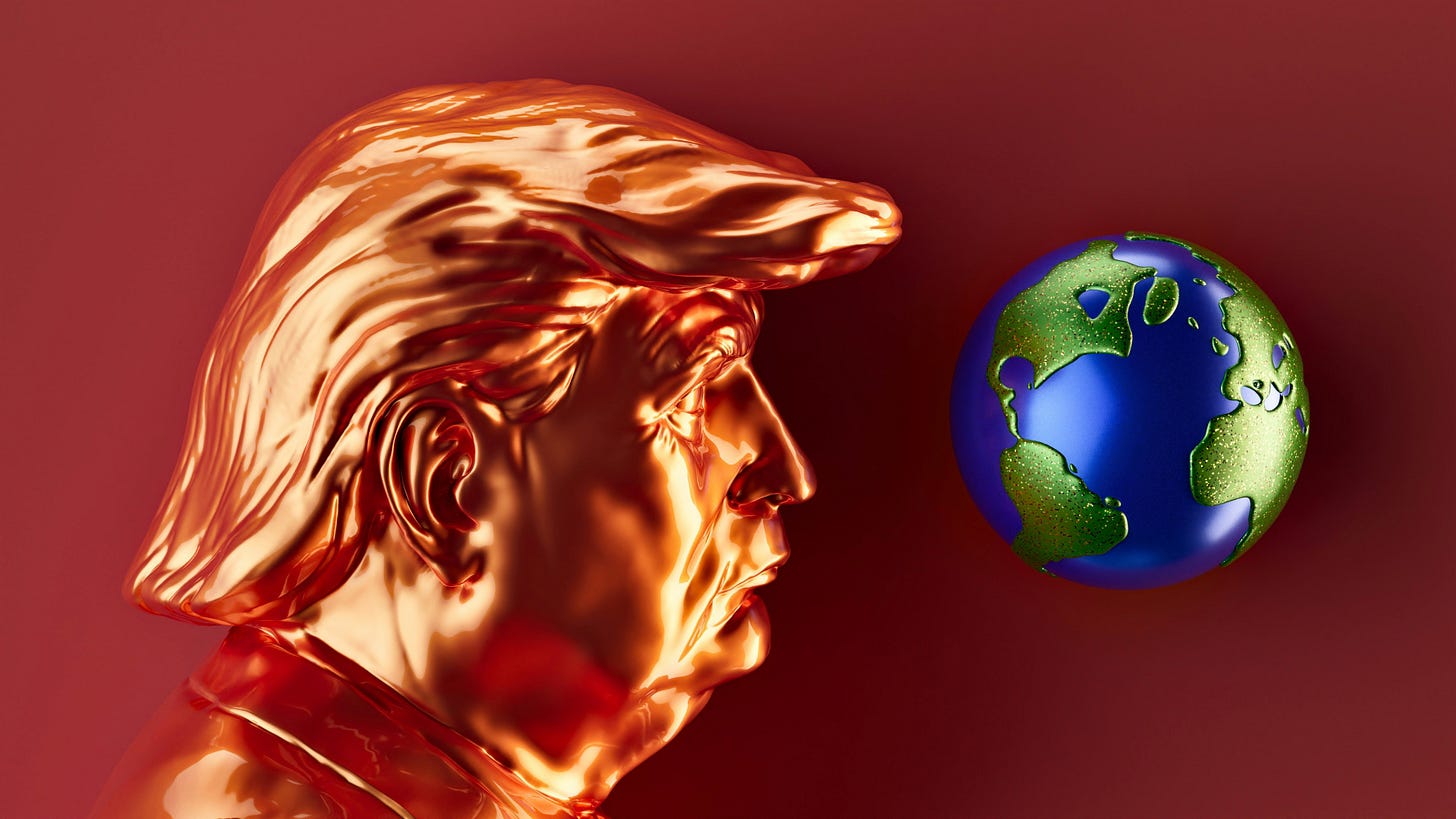Trump’s Tariff Timebomb: How Donald Trump’s Introduction of Tariffs Will Impact Lesotho’s Textile Industry
By Naledi Gill
Lesotho, the land, according to Trump, “nobody has ever heard of”, has recently fallen victim to one of the highest tariffs imposed by the U.S. president. The landlocked country with a population of 2.3 million people has been hit by a 50% tariff by Donald Trump. This has been referred to by Trump as “reciprocal tariffs” and marks the beginning of America’s increasingly protectionist stance.

On April 2nd, the White House released a list of the countries that will be impacted by the tariff introduction. Trump announced that these will take effect on April 9th. In light of recent events, Trump has announced a temporary hold on the implementation of tariffs for 90 days for all countries, except China. This has sparked a back-and-forth between the two superpowers, with China pushing back on the United States’ 145% tariff rate with a reciprocal 125%. Stopping the exploitation of the American taxpayer has been one of many reasons expressed by the president, even dubbing April 9th as “liberation day for the American people.” But what are tariffs, and why has this decision sent various economists into a financial frenzy?
What Are Tariffs?
Tariffs, as defined by economist Douglas Irwin, are “duties and fees levied on goods entering one country from another”. Simply put, they refer to a tax placed on imported goods. This is done for a myriad of reasons. Many countries that choose to lean into protectionist policies utilise tariffs to protect and bolster their domestic industries, such as local businesses. Imports can be cheaper for several reasons. Exporting countries could have different labour laws, resulting in cheaper production costs.
The appreciation (strengthening) or depreciation (weakening) of currencies also results in cheaper imports, which create trade imbalances. Naturally, most individuals seek the cheapest options, and thus, local industries are harmed by this. For example, the fast fashion industry relies on low-quality and quick production methods to capitalise on rapidly changing fashion trends.
This is possible due to the utilisation of sweatshops in countries with poor labour laws, and thus, the mass production machine can keep churning. Shein, a major global fast fashion company, has been accused of harming local clothing industries due to its exportation of cheap clothing goods. Local industries cannot compete with these prices unless they undercut themselves.
Lesotho’s Textile Industry
Lesotho heavily relies on its textile industry for exports, manufacturing jeans for brands such as Levi’s and Wrangler. This industry keeps about 30,000 people employed as garment workers and exports approximately 75% of its textiles to the United States. The tariffs will mean that goods produced in Lesotho and sold in the United States will increase in price. This will lower demand, severely impacting the ability of goods produced in Lesotho to succeed in the American market. This will have intense financial implications on the country that already suffers from half of its population living under the poverty line.
An increase in job losses and factory shutdowns could be a result of Trump’s decision, particularly as the United States is one of the biggest markets for the landlocked country. Lesotho, however, cannot afford to match the import levels of the global superpower. Not only is Lesotho smaller in terms of population, but also smaller in terms of Gross Domestic Product (GDP). Lesotho’s GDP only amounts to $2.01 million in comparison to the United States’, whose GDP is $29 trillion. The Southern African Development Community (SADC) countries are preparing to meet with the U.S. president in June to discuss concerns and a way forward in mending economic ties.
Trump’s Reasoning
Donald Trump refers to this process of “reciprocal” tariffs as a means to punish countries that “treat [the American people] very badly.” According to Trump, Lesotho has a 99% tariff imposed on American goods. While the United States have imported around goods estimated to $237 million from Lesotho, Lesotho have only imported goods estimated at $2.8 million.
Basotho officials are particularly upset about this as the country has enjoyed the success of the African Growth and Opportunity Act. The act was introduced during the Clinton administration and has allowed the country to export goods to the United States without being charged severe duties. This has aided Lesotho in fostering economic growth; however, the tariff introduction threatens this and further stresses the diplomatic relationship between the countries.
Other countries have also borne the brunt of the tariff introduction. South Africa has been hit with a tariff of 30%. The country has been on the United States’ offence list since the introduction of the Land Expropriation Act without compensation. This prompted a response from the United States to cut off foreign aid, suspending funding for the Emergency Plan for AIDS Relief. The introduction of tariffs will particularly impact South Africa’s citrus industry.
What Could This Mean for Impacted Countries?
Various economists believe Trump’s decision will have massive impacts on the global trade sphere. Annabel Bishop, an economist at Investec, believes that this could likely increase trade within the Global South; however, this will come after some “very negative consequences.”
This could also result in the emergence of different trade players. China has been the major global goods exporter for seven consecutive years. The implementation of these tariffs would cement China’s position as the preferred dominant trade partner. However, what is certain is that the introduction of tariffs has disrupted the global supply chains and diplomatic relations.




Insightful.